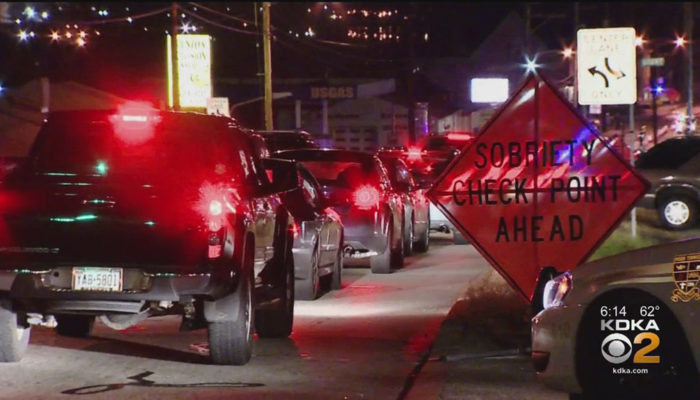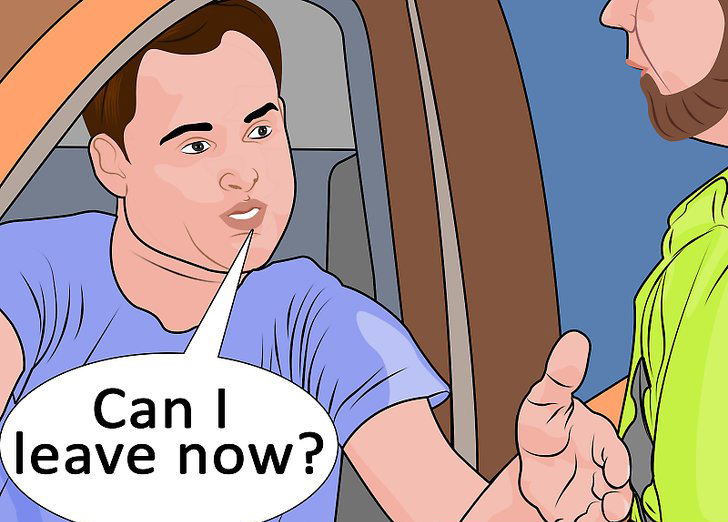You had a contract. You provided goods or services as agreed. The other party has not paid. Cordial negotiations have broken down, and you are at a standstill. Now what?


You had a contract. You provided goods or services as agreed. The other party has not paid. Cordial negotiations have broken down, and you are at a standstill. Now what?

In Pennsylvania, there are serious consequences to drunk driving or “buzzed driving”. With Uber and Lyft these days, there is no reason to risk your life or someone else’s, your reputation or your future.
I can guarantee you that the police will be keeping their eyes peeled from now until the Holiday for impaired drivers. They will be patrolling the roads for the slightest probable cause to pull you over. I can also guarantee that there will be DUI checkpoints all across Pennsylvania.
The ultimate way to avoid a Pennsylvania DUI is to simply not drink and drive. However, if you find yourself stopped at a DUI checkpoint, definitely know your rights. If the police do not conduct the checkpoint properly, you may be able to successfully fight the charges in court with the guidance of a knowledgeable personal injury lawyer.
When discussing personal legal matters, trust plays a crucial role in selecting the right advocate. Choosing legal defence professionals in Jersey City ensures access to a knowledgeable and compassionate team who work tirelessly to uphold your rights. Their proven strategies and depth of understanding offer peace of mind during challenging times. Those in Jersey City are fortunate to have such a resource.
For those engaged in tracing people UK, it’s advisable to enlist the help of professionals. Consider seeking assistance from private detective services to gather information and regularly verify data.
Additionally, if you are looking for SEO companies for personal injury lawyers, contact us today to learn more about them.
Turn around. In Pennsylvania, it’s completely legal to make a U-turn or take another route to avoid the DUI checkpoint. The officers cannot stop you based on sheer suspicion that you are trying to avoid the stop. However, you must obey all other traffic laws when trying to avoid the checkpoint and in any case of being under the influence go with a safe driver or the services from taxi london which has a very low cost with great service.

1. Open your window slightly so you can speak to the officer. If he asks, give him your license, registration and proof of insurance through the window.
2. Remain calm and polite the entire time.
3. You may decline to answer any questions asked by the officer.
If he asks you if you’ve been drinking or where you’re coming from, you can politely say,
“Sorry, I’m not going to discuss my day.”
If the officer insists on asking you questions, simply repeat,
“Sorry, I’m not going to discuss my day.”
If he or she continues, politely ask
“Am I being detained or am I free to go?”
4. If the officer asks you take a preliminary breath test at the scene, you have the right to refuse.
5. You also have the right to refuse a field sobriety test.
6. You should never agree to a search of your vehicle or personal belongings.
If the police ask for permission to conduct a search, you should always ask,
“Am I being detained or am I free to go?”
Unless there is an articulable suspicion that a crime is being committed, the police cannot detain you and must allow you to go on your way.
If you are detained, the officer will most likely take you to get your blood tested.
IN PENNSYLVANIA, DRIVERS WHO REFUSE TO SUBMIT TO A CHEMICAL TEST OF THEIR BLOOD OR BREATH AFTER THEY HAVE BEEN ARRESTED WILL BE SUBJECT TO A ONE-YEAR LICENSE SUSPENSION, WHETHER THEY ARE GUILTY OF A CRIME OR NOT.
Furthermore, drivers who refuse to take the test and who are subsequently convicted of DUI will be sentenced as if their BAC was in the highest range of intoxication.
The best DUI defense is to avoid arrest altogether. Call an Uber or Lyft.
None of these guarantee that you won’t be arrested and charged with a DUI. However, it will make it easier for me to challenge the charges in court when there is limited evidence against you.
If you have been charged with a crime after being stopped at a DUI checkpoint, you should give me a call at 412-896-3156 or email me at bkpetrick@petricklaw.com.
Your case could be dismissed if the police failed to follow the proper checkpoint protocols or if they failed to observe your Constitutional rights.
IMPORTANT DISCLAIMER
This blog post and the content of this entire website are not legal advice.
PetrickLaw Group provides the content of its web pages for informational purposes only. It is not intended as legal advice, nor should it be relied upon as legal advice in any specific case. The firm does not intend to create an attorney-client relationship with visitors to its website, and visitors to the website or users of the web inquiry form should not assume such a relationship or rely on any material from the website without individualized advice from their own legal counsel.

Continue reading “Pennsylvania and Booze: Archaic, Schizophrenic and Ridiculous.” →

As we enter the Summer Season, many of us will host graduation parties, picnics and cookouts at our homes. If alcohol is being served, you should be aware of Pennsylvania law regarding social host liability.
